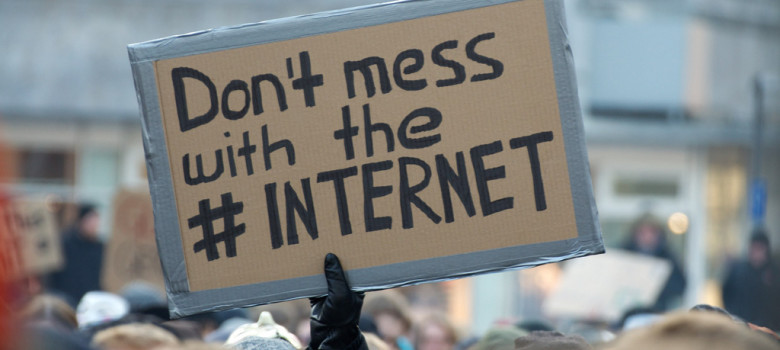The North America Free Trade Agreement renegotiation is likely to start within the next few months as the U.S. triggers provisions that will re-open Canada’s most important trade deal. With U.S. Secretary of Commerce Wilbur Ross emphasizing the need to address digital economy issues, I wrote about a digital economy-era NAFTA in last week’s Globe and Mail, noting that there were some issues (including online contract enforcement and consumer protection) that should relatively uncontroversial.
In light of yesterday’s U.S. Congressional decision to overturn online privacy rules, it is worth revisiting the NAFTA renegotiation issue and consider whether Canada will need to safeguard its Internet policy. I noted last week that the U.S. was already likely to target two Internet-related privacy measures: data localization and data transfers. Data localization, which could mandate retention of personal information on computer servers located in Canada. has become an increasingly popular policy measure worldwide as countries respond to concerns about U.S.-based surveillance and the subordination of privacy protections for non-U.S. citizens and residents. The Trans Pacific Partnership included restrictions on data localization requirements at the insistence of U.S. negotiators and those provisions are likely to resurface during the NAFTA talks. Similarly, limitations on data transfer restrictions could surface, restricting the ability to establish privacy safeguards and placing Canada in a difficult position with the EU requiring restrictions and NAFTA prohibiting them.
The U.S. telecom policy changes under the Trump Administration may cause additional areas of contention. The U.S. retreat from online privacy rules will make it easier for telecom companies to track and sell subscriber online activity by lifting an opt-in requirement to use and sell such information. Canada faced a similar issue in 2013 when Bell introduced its “Relevant Advertising Program” that sought to use subscriber information for targeted advertising purposes. The program sparked hundreds of complaints focused on concerns that Bell was planning for an opt-out approach that would allow it use the information unless customers specifically requested otherwise.
The Privacy Commissioner of Canada ruled that Bell’s plans violated Canadian privacy law in 2015, concluding:
we remain of the view that Bell cannot rely on the opt-out consent of its customers in order to implement the RAP. Both the sensitivity of the information at issue and the reasonable expectations analysis lead us to the conclusion that such consent is not appropriate in the circumstances. In our preliminary report, we recommended that Bell provide its customers with the opportunity to make an express opt-in choice regarding whether or not they consent to Bell’s use of their personal information for the RAP
Bell initially refused to comply with the decision, but later agreed to abide by the opt-in requirement. The case places Canada and the U.S. on opposite tracks when it comes to the commercialization of online tracking by telecom companies. The concern from a NAFTA perspective is the potential for the U.S. to want Canada to match its approach, arguing that Canadian law makes it more difficult for its marketers to conduct business in Canada. In this case, as with data localization and data transfer, the issue should be off the negotiation table.
The Trump Administration has also shifted away from its open Internet policies with changes to ISP transparency and the closure of net neutrality inquiries into zero rating arrangements. Canada takes a different approach with transparency a core requirement of the Internet Traffic Management Practices and zero rating currently under consideration at the CRTC. A renegotiated NAFTA could see the U.S. seek to stop Canadian net neutrality rules from restricting potential “zero rating” agreements between large U.S. rights holders and Canadian Internet providers.
Canada once adopted a trade approach that excluded culture from the ambit of U.S. trade negotiations, arguing that each country was entitled to its own policies. The strict “off-the-table” approach on culture was abandoned in the TPP, but the NAFTA renegotiation may bring a new requirement that negotiators ensure that the U.S. keep its hands off the Canadian Internet.








Pingback: the digital reformation continues … – the pause
I want a public inquiry into my case and financial compensation for over 30 years of torture and abuse of power by CSIS/RCMP/CSEC, media such as CBC, CTV, GLOBAL such online, TV and social media,
local police, Canadians, mental health, human rights, private sector and government for over 30 years of complaining declared top secret by SIRC the watchdog for CSIS when I spoke to them in 1989 left with a major disability both physical and mental unable to work full time for over 30 years due to diagnosis which was a hate crimes. I want justice as soon as possible.
use purevpn with https everywhere and stay protect from isp…
Pingback: Law and Media Round Up – 3 April 2017 | Inforrm's Blog
Pingback: A Roundup of Trump's ISP Privacy Rollback